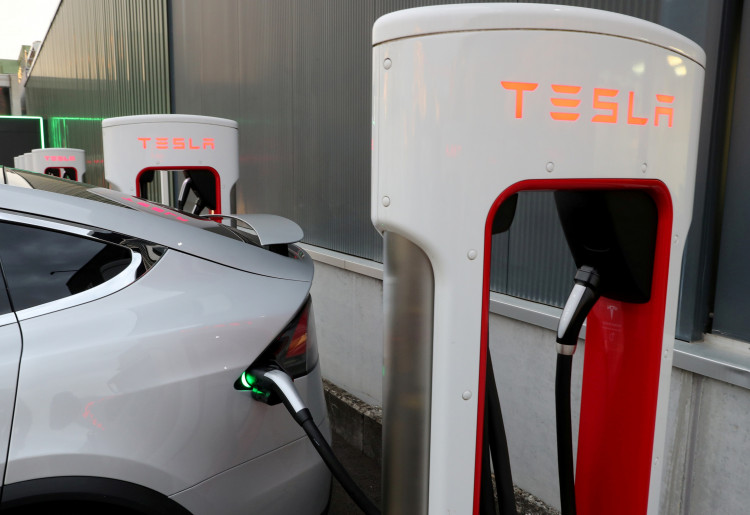General Motors (GM) is opening a new chapter in its electric vehicle (EV) strategy by allowing its customers to access Tesla's vast network of Superchargers. In a move that reflects the shifting dynamics of the EV industry, GM announced it will offer adapters to Chevy, Cadillac, and GMC electric vehicle owners, giving them access to Tesla's robust charging infrastructure. This decision comes as the automaker continues its push to make EV adoption smoother for its customer base, while also addressing one of the most significant challenges facing the industry: convenient access to reliable charging stations.
The Tesla Supercharger network, which is considered one of the best in the world, has been exclusive to Tesla owners for years. With GM's new initiative, the automaker's EV drivers will be able to charge their vehicles at over 17,800 Tesla Superchargers using GM-approved North American Charging Standard (NACS) DC adapters. These adapters, which cost $225, will be available for purchase through GM vehicle brand mobile apps. GM's customers will also have access to more than 231,800 public chargers across North America.
"Enabling access to even more publicly available fast chargers represents yet another way GM is focused on further improving the customer experience and making the transition to electric more seamless," said Wade Sheffer, vice president of GM Energy, in a statement.
The collaboration between Tesla and GM is not just about customer convenience; it is also part of a broader push to accelerate the adoption of electric vehicles in the U.S. The move follows President Joe Biden's ambitious goals to combat climate change by increasing EV sales and expanding the national charging infrastructure. Biden has set a target for 50% of new U.S. car sales to be electric by 2030 and aims to install 500,000 charging stations across the country.
GM's decision to partner with Tesla on charging access is a critical step toward alleviating consumer concerns about the availability of charging options. Lack of reliable and accessible charging stations has long been one of the primary deterrents for potential EV buyers. With the addition of Tesla's charging network, GM is taking significant steps to address this issue head-on.
While the adapters are available for purchase, GM plans to integrate the Tesla charging port directly into future vehicle models, eliminating the need for adapters altogether. The company is also enhancing its mobile apps, allowing users to search for Superchargers, check station availability, initiate charging sessions, and pay for the service.
Notably, GM's approach to selling the adapters, rather than offering them for free, has sparked some debate. Ford and Rivian, two of GM's competitors, initially provided free adapters to their customers as part of their transition to using Tesla's Superchargers. However, GM has opted not to offer a complimentary period for the adapters, a decision that may not sit well with some customers.
GM is not the only automaker moving toward integrating Tesla's charging standard. Last year, Ford became the first major automaker to adopt Tesla's EV charging plug, followed by Rivian. Other manufacturers, such as Volvo, Polestar, Nissan, and Mercedes-Benz, have also announced plans to collaborate with Tesla to grant their customers access to the Supercharger network.
Tesla's Supercharger network has long been one of the most reliable and expansive EV charging infrastructures, providing a significant advantage over other automakers. However, by opening its network to non-Tesla vehicles, the company is aligning itself with the broader goal of advancing EV adoption and increasing the availability of fast-charging options for all drivers.
GM is also working on several projects aimed at expanding the overall charging infrastructure in the U.S. The automaker is involved in initiatives with EVgo and a joint venture with other automakers to build new fast chargers across the country.
The expansion of charging networks, coupled with increasing EV production, signals a shift toward making electric vehicles a more viable option for consumers. As more automakers collaborate to open up their charging infrastructure, the barriers to EV ownership are expected to continue to decrease, further driving the transition away from gasoline-powered vehicles.






